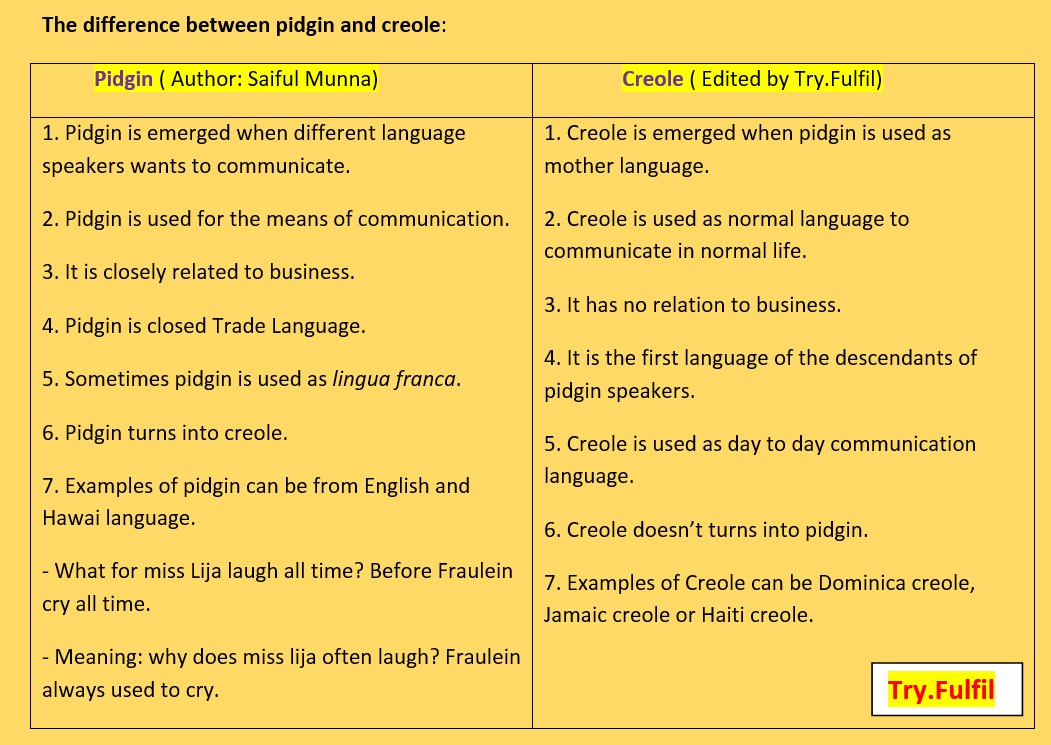

I take God beg you (I beg you in God’s name).You can exclaim abeg! to show that you didn’t do it or you’re disgusted. An example is where someone accuses you of picking or probably spoiling their belonging. In some instances, it can be used by someone to exonerate himself. For example, when transacting and feel the price of the commodity is high. For example, one can say Abeg no try me (please don’t test my patience).Īlso, abeg could be used to show disbelief in something or someone. This translates to ‘please’ or asking for a request in standard English. This translates to how are you in English. Nigerian Pidgin Phrases Every Beginner Should Know 1. Some of these words include sef (used to emphasize a preceding statement), chop-chop (one who eats a lot, embezzles, or mishandles), and gist (chat/gossip), among others. Due to this, many words that originate from the Nigerian pidgin have found their way into the Oxford English Dictionary. The Nigerian pidgin has a huge acceptance in Nigeria and other countries outside of the country. Also, it is common among Eastern trading regions, including Onitsha, Aba, Umuahia, and notably in use in Port Harcourt, Lagos, and Benin City. Therefore, on a broad view, it is spoken in all geopolitical zones with documented statistics showing a higher use in the oil-rich South-South regions such as Warri and Sapele. As a nation composed of over 500 different languages, Pidgin English gives a means of understanding among the country’s people. The advancement in urbanization and national integration has fostered the spread of the Pidgin English language beyond the local/rural communities, into big cities, and even outside the country. The new generation slangs in Nigeria have opened the Nigeran Pidgin to numerous short trending phrases and expressions that bear little importance to the wider population but can form the entire basis of a conversation among young Nigerians. In recent times, Pidgin English usage among the youths has boosted the vocabulary content, and it is widely spread through pop culture, music, comedy skits, and movies, among others. For instance, di food burn well well (The food really got burnt), I fit die now now (I can die immediately), di money don finish kia-kia (The money has finished quickly-quickly). Similarly, many Nigerian languages have reduplication, which has been infused into the pidgin language.

For instance, Walahi (sincerely – Hausa), obodo oyibo (white man’s land – Igbo), Koro (short cut, dark alley, or dirt road – Isoko), Una (plural of you (from unu) – Igbo), and Abi (Right – Yoruba).

In the history of Nigerian pidgin, words were borrowed from many indigenous languages. Also, many Nigerian languages omit the preposition ‘to.’ This influences an instance such as I wan go market (I want to go to the market). Many Nigerian languages describe eating in the same manner as chopping (cutting into pieces). The Nigerian pidgin, like any other pidgin, borrows words and language structure of indigenous languages. Alternating from a reference to the uneducated and rather used as a show of national identity. Following the colonial area, it became more dominant between the British and their indigenous staff, and at the turn of independence, the language continued to grow. The language was developed to foster communication between British slave traders and the locals. The Nigerian pidgin started during the pre-colonial era in the 17th century. Also, Pidgin English speakers maintain their own languages for conversation purposes within their own people. Typically with easy grammar and a reduced vocabulary than the languages from which it is derived and used among people who do not share a common language (i.e., lingua franca) for communication. Generally, pidgin is a language made up of lexicons and other features from more than one language. Pidgin is used in many day-to-day activities in Nigeria, including an exchange in the marketplace, places of worship, music, and media, among others. It is often used as a language to bridge the gap that other Nigerian languages may come with. Pidgin in Nigeria is well accepted among people of different classes, ages, and ethnicities. The Nigerian Pidgin language is one of Nigeria’s most widely spoken languages, with about 40 million people speaking it as a first language and over 60 million as a second language.


 0 kommentar(er)
0 kommentar(er)
